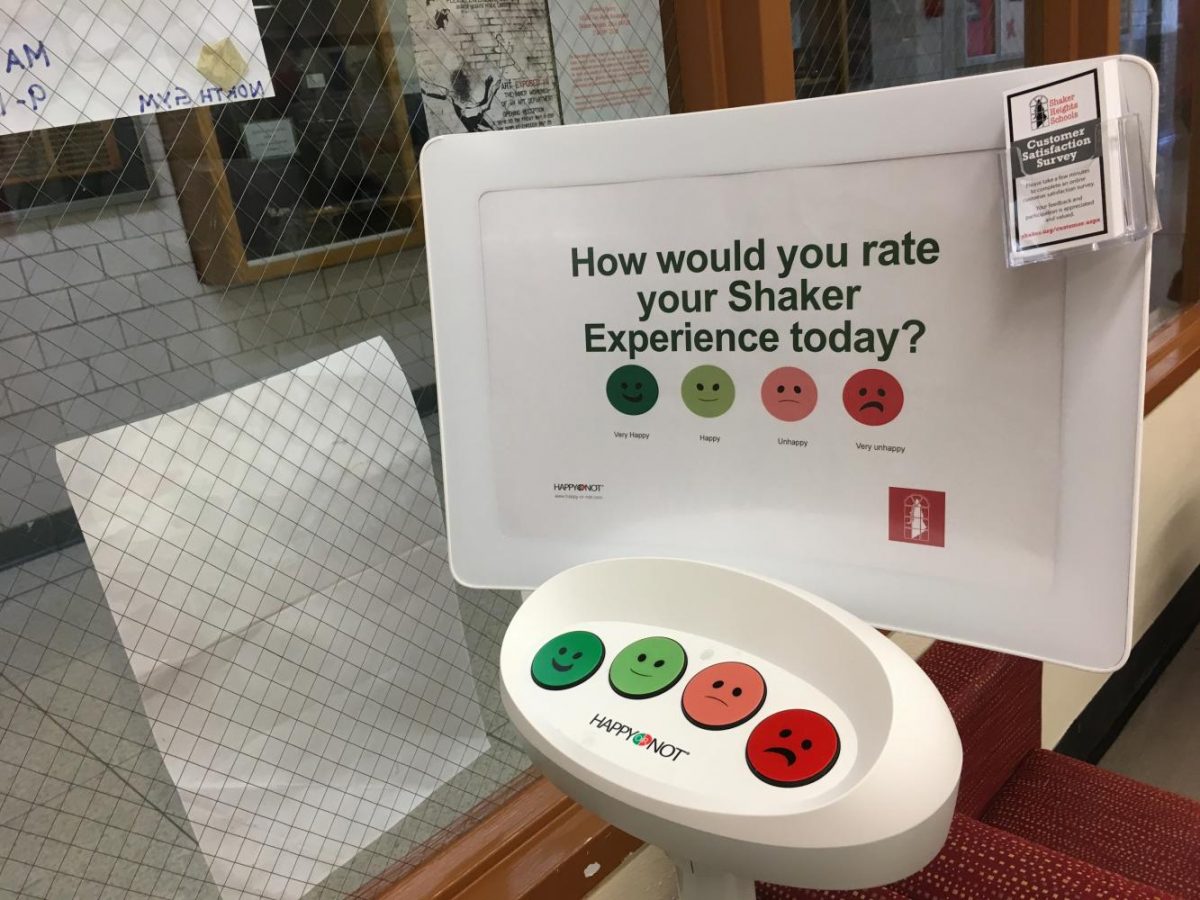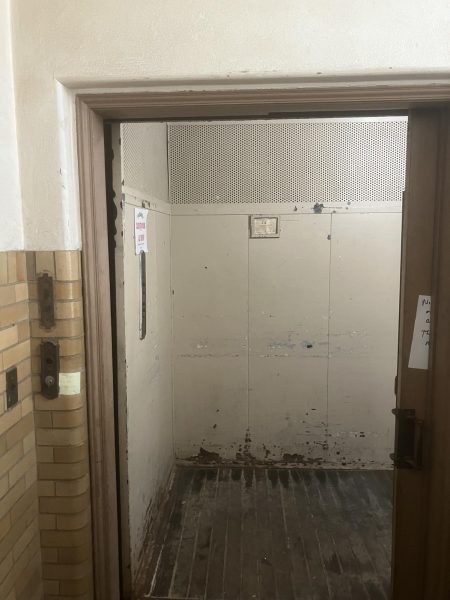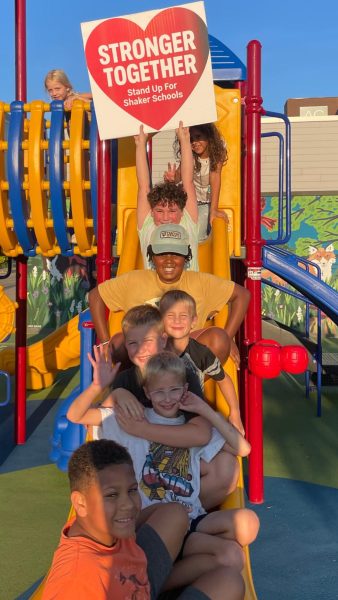Shaker Wants to Know if You’re Happy
The school district’s Happy or Not terminals, aiming to improve customer service, elicit negative response from teachers
The high school’s Happy or Not terminal sits near the entrance of the main office. The district hopes data it collects will help improve customer service.
You might wonder what a machine bearing smiley and frowny faces is doing in the high school’s main office.
The terminal, created and sold by the company Happy or Not, is part of a customer satisfaction program the district is piloting.
“The Happy or Not console came as an idea that’s connected directly with the strategic goal to provide excellent customer service,” said Kiki Stout, personnel specialist.
The terminals were installed in the high school, administration building and middle school in March. Each machine costs $200. Happy or Not also sells machines to customers such as Volvo and Nike.
Scott Stephens, executive director of communications and public relations, said that the terminals are most often seen in the business world. “You sometimes see them in airports . . . or a lobby of a hotel or any kind of customer service situation,” he said.
A sign on the machine asks passersby to “rate your Shaker Experience” by pressing one of the cartoon faces depicting emotions ranging from very happy to very unhappy. It also provides a link to a survey to answer further questions.
The idea for the terminals emerged when Superintendent Gregory C. Hutchings, Jr. saw a similar machine in a airport restroom. After research and consideration, the district decided to implement the Happy or Not program.
Each terminal has a mechanism that protects it from misuse. If the buttons are pressed repeatedly in a certain interval, the data is not collected.
Stout said that the terminal is meant to be used by many groups. “Our customers include many different people. It’s not just one group — it’s parents, it’s students, it’s our vendors,” she said. “It’s anyone who has a customer service experience.”
Stout said that the district aims to use the feedback from the terminals to improve customer service. However, she also said that the feedback so far has been “not enough to make a statement.” Since its installation in March until April 30, the high school terminal recorded 1,908 responses. New data has not been compiled since then.
Stout gave an example of how the machines could be used. “If they introduced a new food in the cafeteria, we could put that console there and ask the question, ‘What do you think of the new menu?’ ”
“The only real use of the terminals is to look for long-term trends,” said Stephens. For example, if visitors to the school respond with unhappy faces within a certain time period, administrators can infer that there is a problem in that office at that particular time and hire another person to help.
No decision has been made about the long-term use of the terminals or whether the program will be expanded.
Principal Jonathan Kuehnle is not involved with the machine or data collection but was informed about the terminals’ purpose. “I assure teachers it’s not about anyone’s evaluation,” he said. “It’s really just one more data point to see how we’re doing with anyone who comes into the office.”
Kuehnle has not yet seen the data from the machines. He also sent an email to all high school staff members explaining the machine and its purpose.
The terminals have been met with criticism from staff members. Two members of the Shaker Heights Teachers Association have published editorials expressing their concerns with the machine.
“The idea that we should be doing anything we can to please our ‘customers’ erodes the integrity of our profession,” wrote English teacher Valerie Doersen. “We are not a business. We do not have customers. Students are not products. They are children, and we are trying to guide them to being ethical, responsible, informed adults. That process is messy, and it often leaves people unhappy.”
English teacher Chris Cotton wrote that, “We teachers wish to express our great disappointment in this development, and our firm belief that education, at its beating heart, is not a business, and that thinking of it as such does great harm to this district that we love.”
English teacher Molly Miles also criticized the terminals. “I feel like this isn’t a business, it’s a school,” she said, “so it’s interesting that this is the approach, because I would think that if there were an issue, people would rather be approached face to face — not have to find out through a survey or have a smiley face hold as much weight as it does.”
Students were concerned with the sincerity of the data the machine collects. Junior Miles McCallum said, “I think there are just too many variables.”
Sam Lehman contributed reporting
Comment using your Facebook, Yahoo, AOL or Hotmail account







